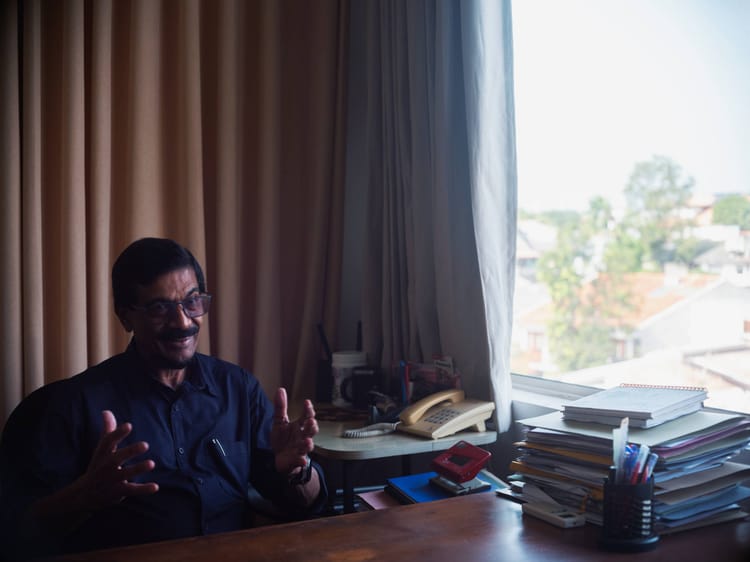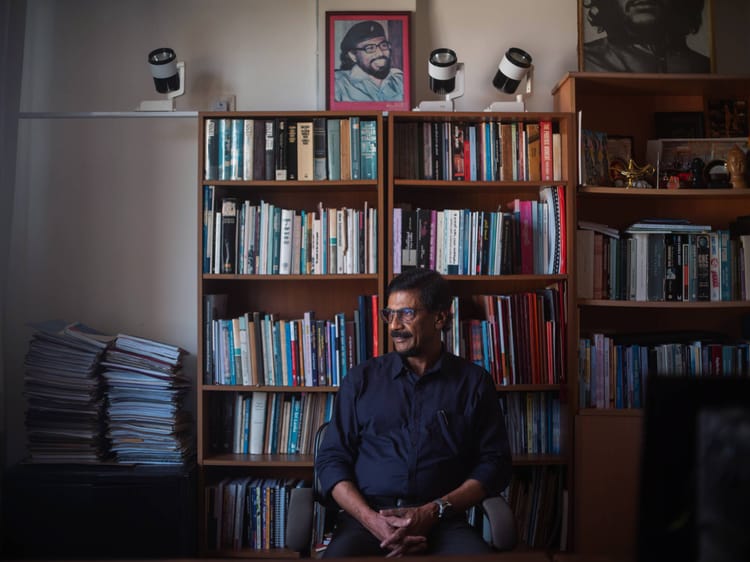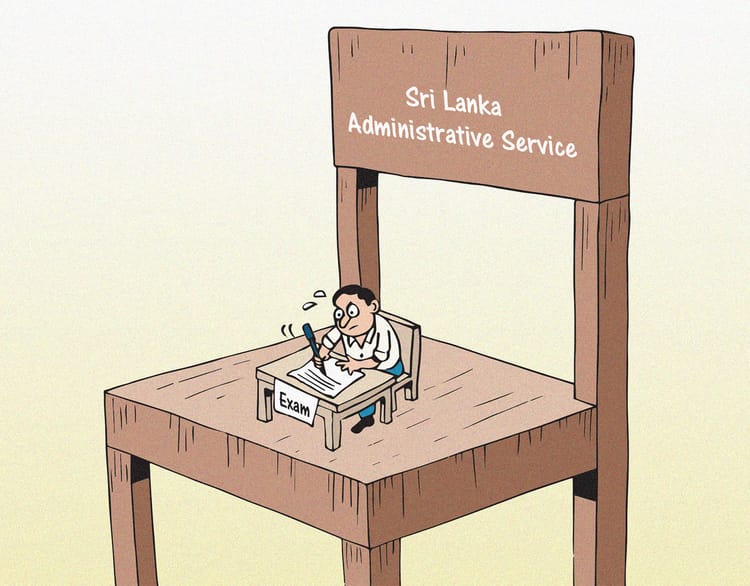
When Inspector Bhathiya Jayasinghe arrested Ranjith Sumangala for theft, he also beat him in front of his wife and children. The pole broke, the club broke, and Sumangala’s daughter fainted watching her father get hammered.
Sumangala was taken to a cemetery where Jayasinghe threatened to bury him alive. He ordered bags of chili powder to be tied around his head. At the police station, already bloody and bruised, Sumanagala was hung upside down from a beam and beaten with threewheeler belts as Jayasinghe forced a confession.
Finally released on bail, Sumangala filed a Fundamental Rights petition. Thirteen years later, in December 2023, justice prevailed. The Supreme Court found that Jayasinghe violated article 11 of the constitution, which protects citizens from torture. During the trial, Jayasinghe’s many victims testified, making it clear that he was effectively running a torture chamber.
Today Jayasinghe is still a police officer, attached to the Avissawella police.
Just a few months ago he was the OIC of one of the largest police stations in the country — Maligawatte. There, Jayasinghe was responsible for 114 staff and hundreds of suspects. Over a decade after committing his heinous crimes, and over a year since he was found guilty, the system gave Jayasinghe every opportunity to torture again.
Impunity by procedure
Even for the most serious, clear-cut cases like Jayasinghe’s, the police’s disciplinary system does not work. Not even a Supreme Court ruling is able to spring it into action.
When Jayasinghe tortured Sumanagala, he was the OIC of the Mirihana police station’s ‘Emergency Unit,’ working under the supervision of Deshabandu Tennakoon. Jayasinghe and Tennakoon were both found guilty of torture in the same infamous fundamental rights case. But Tennakoon went on to be the IGP, and Jayasinghe is still a police officer.
The failure arises from flawed disciplinary procedures and hesitation on the part of authorities to punish errant officers.
Here is the process, as outlined by F.U. Wootler, the police spokesman. When a court finds an officer guilty, the judgment is first entered into his personal file. An inquiry must be held within three months by the police disciplinary division. Depending on the wrongdoing, punishment options range from warnings and fines to transfers or dismissals. But who actually does the punishing?
On paper, the National Police Commission (NPC) is responsible for disciplinary matters across all ranks. Similar to the judicial and public services commissions, the NPC functions as an independent overseer.
In practice, the NPC delegates its powers. Discipline of lower-ranking officers is handled by the IGP, via the police department’s disciplinary and conduct division. Until recently, only senior officers and station masters, like OICs, were managed by the NPC directly.
In August, the NPC further delegated discipline of station masters to the IGP too. The delegation was contested in parliament, with the opposition accusing the government of effectively removing the independent NPC’s power.
In Jayasinghe’s case, the disciplinary and conduct division initiated inquiries but failed to take timely action.
The police’s overseer, the NPC, has been unable — or unwilling — to push for action. And so, the buck gets passed. When asked about Jayasinghe’s case, Lalith Ekanayake, the NPC’s chairman, is quick to wash his hands of the situation. “Bhathiya Jayasinghe is below the rank we handle. He is the police department’s responsibility, not ours.”
A human rights lawyer explained that this is where things fall apart. “Who follows up on the judgement?” he asks, "Nobody is held accountable for not implementing the Supreme Court's ruling.” In its judgement the court explicitly called on the NPC to take appropriate action.
Ekanayake blames the NPC’s under-staffing, pointing to its 24 vacancies, and a host of responsibilities. But activists think it is an issue of will rather than capacity.
“The police commission staff call the officers they are investigating ‘sir’,” said Amitha Priyanthi, whose brother died in police custody. “They don’t take these cases seriously.”



